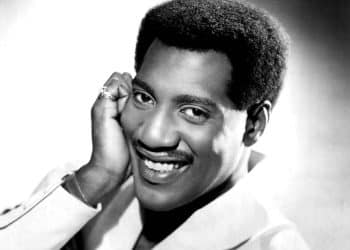Luke James is making it clear that he is not chasing headlines in an effort to stay relevant at the cost of losing his individuality. "I will not be dumbing down shit. I will always convey my feelings with all my heart," insist the N.A.R.S singer.
James continued, "God doesn't dumb down his love. Neither will I. Good is what we've had. Great is what you'll be getting. My Word."
The "I Want You" singer has released a couple of mixtapes and EPs, but fans are still awaiting his official debut album. His most recent song is "Oh God," a track produced by Danja, the head of his record label, and featured Hit-Boy. The song is a part of James' digital album "Whispers in the Dark."
Are you tired of hearing the same generic songs on the radio? Are you longing for artists who prioritize artistic integrity and creativity over commercial success? Look no further than Luke James.
This R&B singer-songwriter is making waves in the music industry by speaking out against the ‘dumb down’ concept. The term ‘dumb down’ refers to the idea that music should be simplified to appeal to a wider audience. It often involves sacrificing lyrical depth and originality for catchy hooks and repetitive beats.
But Luke James refuses to conform to this mentality. He believes that artists have a responsibility to challenge their listeners and push boundaries, rather than pander to what’s popular. In this article, we’ll explore Luke James’ stance on artistic integrity and why it’s so important in today’s music landscape.
The ‘Dumb Down’ Concept in the Music Industry
Don’t believe the hype about dumbing down in the music industry – Luke James is here to set the record straight.
For years, there has been a belief that artists need to ‘dumb down’ their music in order to appeal to a wider audience. This has led to a lot of criticism from those who believe that this trend is hurting the industry as a whole.
However, Luke James has taken a stand against this concept and believes that it is time for musicians to start creating music that speaks to their own experiences and emotions. He argues that artists shouldn’t be afraid to be true to themselves and create music that reflects who they are as individuals.
In fact, Luke James believes that by creating music that is authentic and meaningful, artists can actually connect with more people than if they were simply trying to appeal to everyone. By staying true to themselves, musicians can inspire others and create songs that have a lasting impact on listeners.
So don’t buy into the idea of dumbing down – instead, embrace your unique voice and let it shine through in your music.
Luke James’ Stance on Artistic Integrity
Maintaining artistic integrity is crucial for creating meaningful and impactful art. Luke James understands this concept all too well and has made it a point to incorporate it into his music. The Grammy-nominated artist is not afraid to push boundaries and experiment with different sounds, lyrics, and themes.
James believes that artists should stay true to themselves and their craft, regardless of what the industry may demand. He refuses to ‘dumb down’ his music or conform to mainstream trends just for the sake of popularity. Instead, he aims to create music that speaks to his soul and resonates with his fans on a deeper level.
Luke James’ stance on artistic integrity serves as an inspiration for other aspiring musicians who are struggling to find their voice in an industry that often prioritizes commercial success over authenticity. By staying true to himself and his vision, James has been able to carve out a unique space in the music world while earning critical acclaim from both fans and fellow artists alike.
Conclusion
So, there you have it. Luke James has made his stance on the music industry’s ‘dumb down’ concept clear: he’s not having it.
As an artist, he values artistic integrity and refuses to compromise that for fame or fortune. It’s refreshing to see someone in the industry speak out against this harmful trend.
Hopefully, more artists will follow in Luke James’ footsteps and prioritize their artistry over commercial success. After all, music is meant to be a form of self-expression and storytelling, not just a product to sell.






